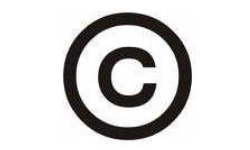 In a recent embarrassing broadcast by KTVU television of San Francisco, the morning anchor, Tori Campbell, identified the pilots of the recent San Francisco Asiana airline crash as “Captain Sum Ting Wong,” “Wi Tu Lo,” “Ho Lee Fuk,” and “Bang Ding Ow.” As she read the names, Campbell didn’t flinch and, even more perplexing, why didn’t the station snag the racist script before airing it? To its credit, KTVU made a quick public apology and fired some employees. The station was still faced with a newscast gone viral. Just how would they remove all the copies of the broadcast on YouTube and other popular web sites?
In a recent embarrassing broadcast by KTVU television of San Francisco, the morning anchor, Tori Campbell, identified the pilots of the recent San Francisco Asiana airline crash as “Captain Sum Ting Wong,” “Wi Tu Lo,” “Ho Lee Fuk,” and “Bang Ding Ow.” As she read the names, Campbell didn’t flinch and, even more perplexing, why didn’t the station snag the racist script before airing it? To its credit, KTVU made a quick public apology and fired some employees. The station was still faced with a newscast gone viral. Just how would they remove all the copies of the broadcast on YouTube and other popular web sites?
Digital Millennium Copyright Act (DMCA) to the rescue! Under the DMCA, a 1998 amendment to the US Copyright Act, copyright owners may request online service providers to take down works, which have been posted online without the owner’s permission. We have written about take down notices in previous posts. Service providers generally obey such requests to avoid liability for the illegal acts of their online subscribers. And so, under the theory that the video posters had essentially stolen copies of the embarrassing newscast, KTVU undertook a “successful” campaign of sending “take down notices” to various web sites such as YouTube. But how successful were they? Well, if you really wanted to see the broadcast, you could find it on Bit Torrent and other file sharing sources but for the mainstream web surfers, KTVU’s campaign appeared largely successful.
KTVU may have been satisfied, but copyright lawyers were not. There is a very compelling argument that the KTVU newscast was not protected by copyright law at all. Section 107 of the U.S. Copyright Act places limitations on the exclusive rights granted by the Act. Copies of works used for purposes such as criticism, comment (including parody), and news reporting are not, under the Section 107, infringing. Rather, such use constitutes “fair use.” Certainly, most people who posted copies of the broadcast did so for no purpose other than criticism, comment, news or parody even it they thought it was funny. If they were posted for racist purposes, perhaps, KTVU has an argument but many, if not the majority of postings, were comments upon the stupidity and poor management of the KTVU newsroom. Based on the fair use theory, bloggers at The Desk submitted counter-notifications with YouTube demanding that the KTVU videos be reinstated. They were apparently successful given that the broadcast is still available here. The KTVU incident, nevertheless, demonstrates how creative use of copyright law can be used for reputation management even if the results are short-lived.
— Adam G. Garson, Esq.

